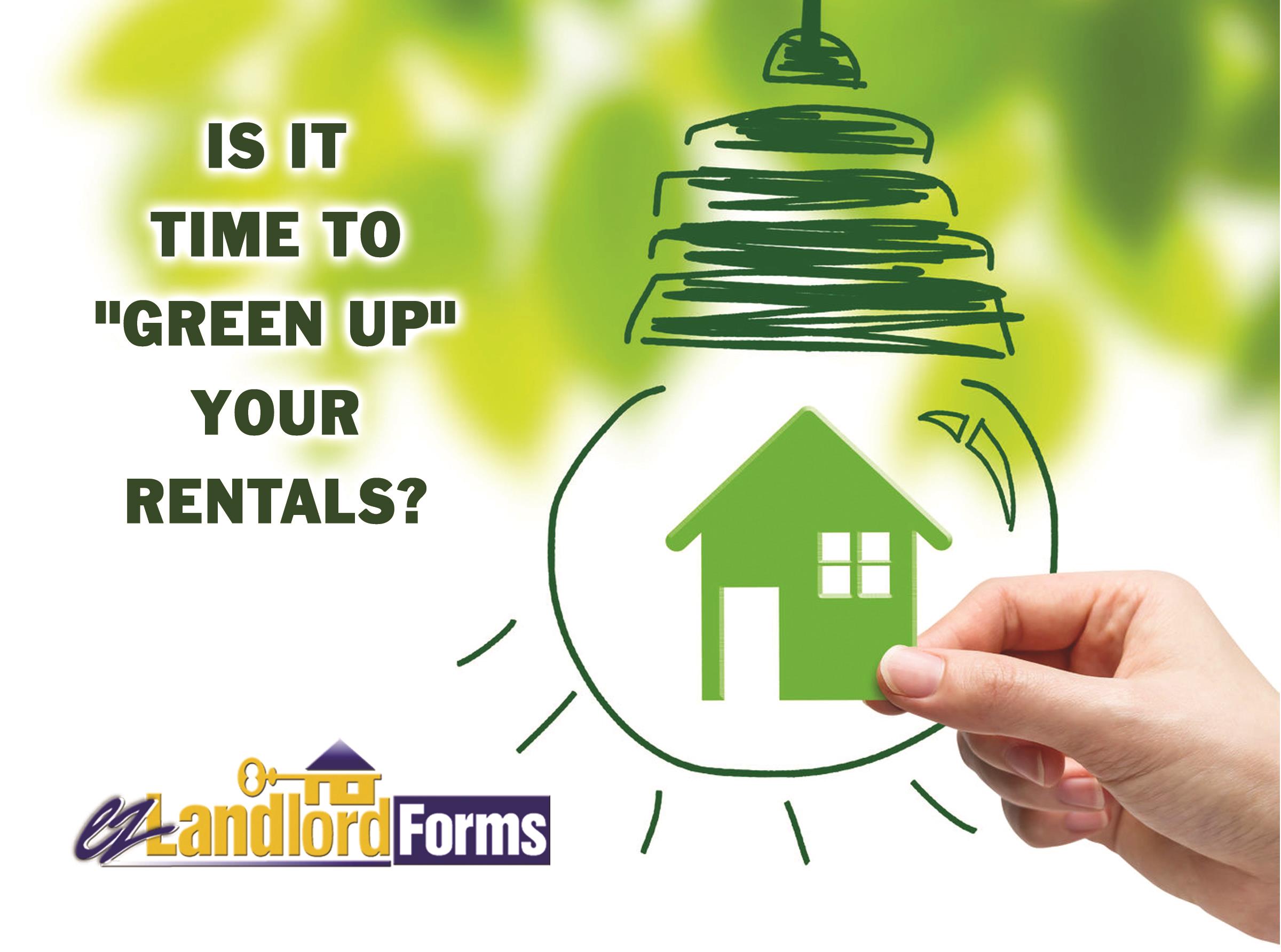
The green movement may be about environmental consciousness and conservation, but when it comes to your rental properties, there may be an added bonus to going green – it may lead to more green in your wallet.
As international lawmakers have focused on greener policies, energy consumption has become an area of increased regulation.
The trend started with increased attention from government regulators on energy consumption. That led to tax breaks being available for property owners who install new energy-saving equipment.
Landlords have always been alert to escalating utility bills. It used to be that as landlords saw utility costs cut into profits, they separated most utility bills from rent and handed the responsibility for cutting water, electric and gas waste to tenants. (Some cities require water bills to remain in the landlord's name.) When waste hits tenants in their wallet, they tend to be more conscious of overuse and reduce their consumption.
Now, though, tenants have started expecting help from the landlord in controlling heating, cooling and electricity bills. They are demanding appliances that further reduce energy use. They want homes with a tight “building envelope,” that is, walls, doors, windows and floors that can prevent warmth and cool air to escape. Some also want to live in rentals that meet 21st century standards for green living – a unit that is within walking distance of work and shopping, a kitchen with recycling sorters, bicycle racks in the foyer and so on.
Naturally, landlords are looking for ways to attract and retain these climate-conscious tenants.
How widespread is this movement?
The push for change is much further along in the U.K. where it will be illegal, starting in April, 2018, for a landlord to rent a home or commercial property with an energy efficiency rating grade below E. Any landlord who defies this new guideline and rents out a property graded F or G will face fines up to £4,000.
Landlords in the U.S. don't face those standards, but a handful of cities have passed laws on disclosure and will fine landlords who don't make their unit's energy consumption statistics available.
In Canada, currently, owners of larger commercial buildings must have a professional assess their energy efficiency and must display efficiency certificates at their properties. Elsewhere, many landlords of commercial properties are voluntarily writing so-called "Green Leases" to cut energy costs.
Newer buildings are more apt to already adhere to new energy standards because of updated, national building code requirements. Individual states have also set requirements and some towns and cities have added their own rules for new builds.
Landlords are renovating older buildings to bring them in line with new energy consumption recommendations, too. They have incentives to reduce energy waste thanks to tax rebates.
What can be done to improve my rentals?
The first question to ask is how much energy is being used and if any of it is being wasted. Professional energy audits are the ultimate tool for uncovering wasted energy and potential savings. The U.S. Energy Department offers an informative infographic that shows exactly what a professional auditor will do.
But there are plenty of steps you can take on your own, too:
- Look for air leaks and seal them with caulk or weather-stripping. Make sure you maintain proper ventilation with heating systems that burn fuel.
- Check common spots for inadequate insulation, such as the attic hatch.
- If the basement or crawl space is not insulated, add insulation beneath the first level flooring.
- Change forced-air furnace filters regularly and have a pro perform annual cleaning.
- Calculate energy use by appliances. The Energy Department lets you do that here. Focus on the older appliances in your units that really suck energy.
How should I handle wasteful tenants?
Nothing is more frustrating to a landlord who is conscientious about saving energy than seeing a tenant crank the heat to tropical temps, leave on lights or waste water. Before blowing your cool – or heat as the case may be – try working with your tenant.
Not everyone has your environmental awareness, so a little education can go a long way. You can make some pretty solid ethical arguments that may appeal to your tenant's conscience. Explain that wasting energy increases air pollution (maybe someone in the home has asthma), water pollution, and even pollution within the home.
Many landlords offer incentives through appliance replacement. It works like this: Landlord buys a new, efficient appliance such as a refrigerator and raises the rent slightly to cover the cost. Tenant pays slightly more rent but still pays less overall because of decreases in the utility bill.
If you pay the water bill and receive a higher-than-usual bill, you can send your tenant a warning that continued high use will result in a charge to them. Then, if water waste persists, you may send a notice with the charge for that excessive use.
Make changes and save over the long term
So, do you wait until new standards are compulsory for your rentals or do you get a leg up on the energy issue now? The advantages to cutting your rental property's energy use – thus paying less on utilities - could be worth initial outlays on modern HVAC systems and improved building materials.
For residential properties, landlords can use the free Cash Flow Opportunity Calculator to see if they're losing money by waiting for lower interest rates before buying that new energy efficient furnace, and learn whether that tankless water heater should be financed or bought with cash from a future budget.
The bottom line is that it's not just an issue for climate change connoisseurs. Sure, you leave the world in better condition than you found it by updating energy systems. But you can also boost your ROI and draw a more discerning pool of tenant applicants who want to do their bit for the environment.